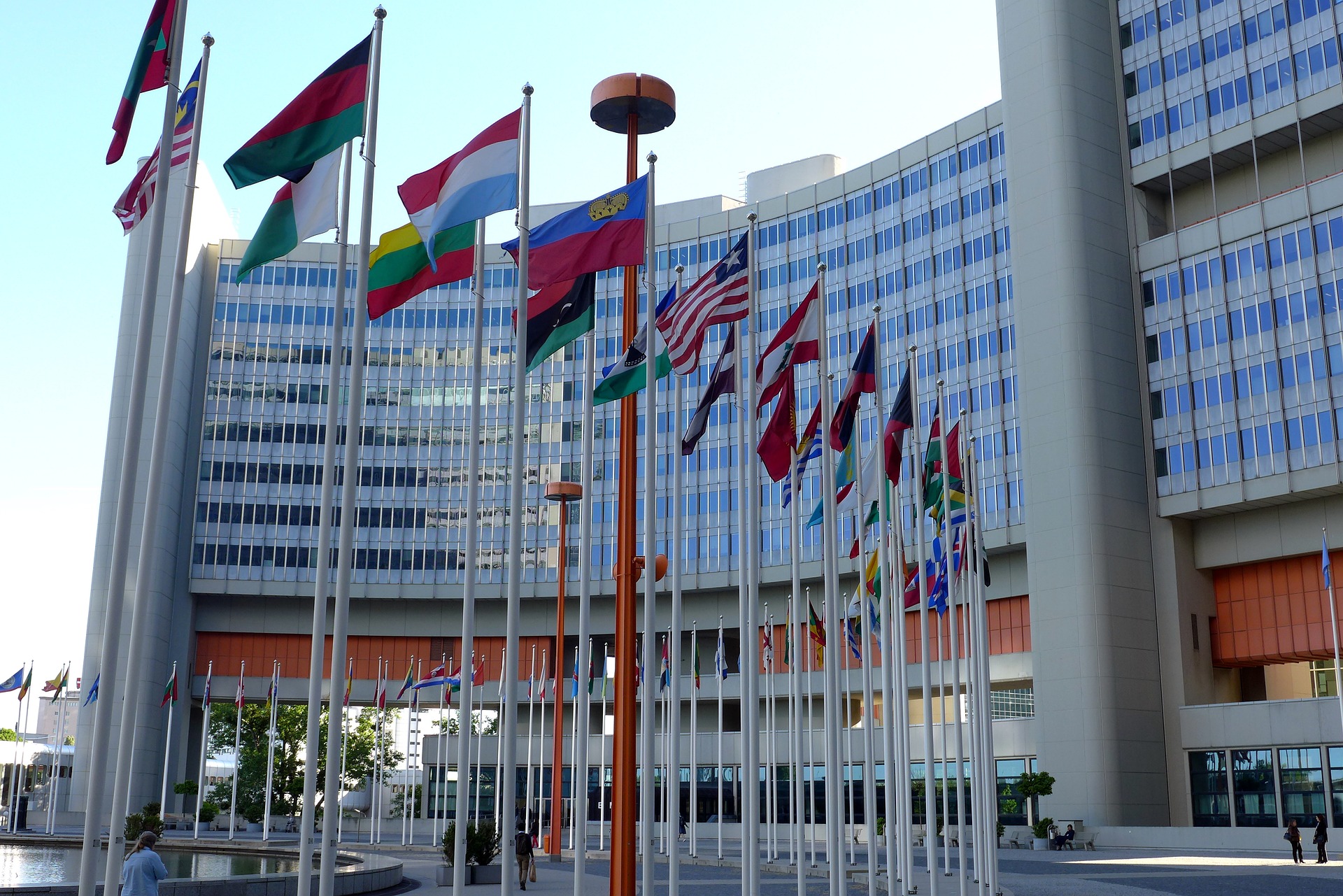The ongoing negotiations to restore the 2015 Iran nuclear deal appear to be on track towards an agreement. However, according to officials from France, the UK, and Germany, Russia’s demands risk the collapse of the deal.
According to Reuters, the three European countries have warned Russia over the weekend that its demand to maintain trade relations with Iran risks the collapse of the nuclear deal, which has been subject to several rounds of discussions for months.
This comes as officials leading the negotiations are coming close to reviving the agreement that would also see the US-imposed sanctions lifted. But in recent weeks, Russian foreign minister Sergey Lavrov demanded a sweeping guarantee that the numerous sanctions on Russia will not affect its trade with Iran.
“Nobody should seek to exploit JCPOA negotiations to obtain assurances that are separate to the JCPOA,” said the three countries in a joint statement. “This risks the collapse of the deal.” They added that the deal should be reached as soon as possible.
Washington has already insisted that it will not agree to Russia’s demands. The talks that have been going on for almost a year also seek to bring Iran back to complying with the conditions set in the deal. This would also bring the US back into the agreement after Donald Trump withdrew from the deal in 2018 and instead imposed severe sanctions on Iran.
Meanwhile, Iran has also temporarily delayed the direct talks with officials from Saudi Arabia over the weekend. Nournews, the outlet affiliated with Iran’s Supreme National Security Council, reported the temporary suspension without citing a reason for the suspension.
This comes as Iran’s foreign ministry previously stated that Tehran is ready to resume talks with Riyadh. Both countries have expressed hope that the discussions could help ease tensions in the region, but have downplayed any expectation of a breakthrough.
Iran and Saudi Arabia cut ties in 2016 when protesters broke into the Saudi Arabian embassy in Tehran when a prominent Shia Muslim religious leader was executed. Riyadh also supported Trump’s “maximum pressure” campaign on Iran since then. Riyadh also previously blamed Iran for an attack on its major oil facilities back in 2019, which Tehran has denied.



 Russia Signals Openness to U.S. Security Guarantees for Ukraine at Geneva Peace Talks
Russia Signals Openness to U.S. Security Guarantees for Ukraine at Geneva Peace Talks  Trump Launches Operation Epic Fury: U.S. Strikes on Iran Mark High-Risk Shift in Middle East
Trump Launches Operation Epic Fury: U.S. Strikes on Iran Mark High-Risk Shift in Middle East  Marco Rubio to Brief Congress After U.S.-Israeli Strikes on Iran
Marco Rubio to Brief Congress After U.S.-Israeli Strikes on Iran  Iran Supreme Leader Ayatollah Ali Khamenei Killed in Israeli, U.S. Strikes: Reuters
Iran Supreme Leader Ayatollah Ali Khamenei Killed in Israeli, U.S. Strikes: Reuters  Trump to Address Nation as U.S. Launches Strikes in Iran, Axios Reports
Trump to Address Nation as U.S. Launches Strikes in Iran, Axios Reports  Why did Iran bomb Dubai? A Middle East expert explains the regional alliances at play
Why did Iran bomb Dubai? A Middle East expert explains the regional alliances at play  Netanyahu Suggests Iran’s Supreme Leader Khamenei May Have Been Killed in Israeli-U.S. Strikes
Netanyahu Suggests Iran’s Supreme Leader Khamenei May Have Been Killed in Israeli-U.S. Strikes  UK Accepts U.S. Request to Use British Bases for Defensive Strikes on Iranian Missiles
UK Accepts U.S. Request to Use British Bases for Defensive Strikes on Iranian Missiles  HHS Adds New Members to Vaccine Advisory Panel Amid Legal and Market Uncertainty
HHS Adds New Members to Vaccine Advisory Panel Amid Legal and Market Uncertainty  Suspected Drone Strike Hits RAF Akrotiri Base in Cyprus, Causing Limited Damage
Suspected Drone Strike Hits RAF Akrotiri Base in Cyprus, Causing Limited Damage  EU Urges Maximum Restraint in Iran Conflict Amid Fears of Regional Escalation and Oil Supply Disruption
EU Urges Maximum Restraint in Iran Conflict Amid Fears of Regional Escalation and Oil Supply Disruption  Middle East Conflict Escalates After Khamenei’s Death as U.S., Israel and Iran Exchange Strikes
Middle East Conflict Escalates After Khamenei’s Death as U.S., Israel and Iran Exchange Strikes  Trump Warns Iran as Gulf Conflict Disrupts Oil Markets and Global Trade
Trump Warns Iran as Gulf Conflict Disrupts Oil Markets and Global Trade  Macron Urges Emergency UN Security Council Meeting as US-Israel Strikes on Iran Escalate Middle East Tensions
Macron Urges Emergency UN Security Council Meeting as US-Israel Strikes on Iran Escalate Middle East Tensions  Zelenskiy Urges Change in Iran After U.S. and Israeli Strikes, Cites Drone Support for Russia
Zelenskiy Urges Change in Iran After U.S. and Israeli Strikes, Cites Drone Support for Russia  Australia Rules Out Military Involvement in Iran Conflict as Middle East Tensions Escalate
Australia Rules Out Military Involvement in Iran Conflict as Middle East Tensions Escalate  Israel Declares State of Emergency as Iran Launches Missile Attacks
Israel Declares State of Emergency as Iran Launches Missile Attacks 































